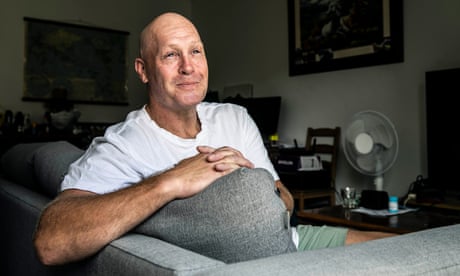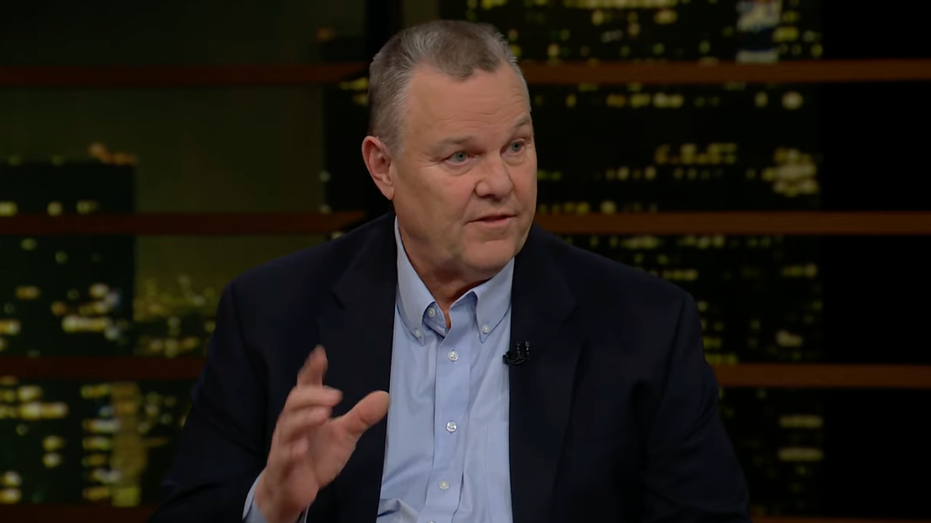- by foxnews
- 09 Mar 2025
‘To get out is an absolute struggle’: landmark study sheds light on Australians sleeping rough
‘To get out is an absolute struggle’: landmark study sheds light on Australians sleeping rough
- by theguardian
- 07 Feb 2022
- in news

Leigh Jorey was pretty successful in his mid-30s. A panel beater by trade, he'd completed an apprenticeship, owned his own tow truck company, and worked at it hard. His success didn't stop him becoming homeless. In fact, it may have contributed to the problem.
Under pressure, Jorey began to turn to less healthy ways of coping, which led him into a downward spiral.
"Ultimately, that led to me being unable to manage tenancies, manage commitments, manage responsibilities - so it was easier to not have them," Jorey tells Guardian Australia. "It was easier to live in squalid conditions, factories, people's lounges, parks. I'd fall asleep at train stations. It was just easier not to have a commitment to anything."
Jorey would remain homeless for nearly 20 years. His story overlaps with thousands of others who have experienced homelessness, and a new report from the Australian Alliance to End Homelessness and the Centre for Social Impact at the University of Western Australia (UWA) has brought them together.
Released on Monday, the report, titled Ending Homelessness in Australia: An Evidence and Policy Deep Dive, draws on surveys collected from 20,953 people who have come into contact with homelessness services across Australia over the past 10 years.
Prof Paul Flatau, director of the Centre for Social Impact at UWA and lead author of the report, says the dataset is the largest of its kind and the report marks the first time it has been analysed.
"We have done lots of studies in the past but it's usually on a relatively small number of people in the inner cities - a single place for one intervention - or it's using census data, or data from one organisation," Flatau says. "This is quite unique because it's very big - a really large, deep and rich database that we can use to understand the circumstances and journeys of people in very precarious situations."
Of the 20,953 respondents experiencing homelessness, 35% were sleeping rough and 44% were in temporary accommodation or short-term accommodation. The average amount of time they reported experiencing homelessness was 3.8 years. For families, it was 1.9 years.
Health was a principal issue, with prevalence rates of asthma, liver disease, dehydration, hepatitis, heart disease and diabetes among people who were homeless all higher than the general population.
Almost a third of respondents (31%) said they had been taken to a hospital against their will for mental health reasons.
More than a quarter (26%) of people said they had been discriminated against by homelessness or housing services due to their age, race, appearance, disabilities, gender identity or sexual orientation.
Named after an international movement that aims to end homelessness, the Advance to Zero database also includes a mechanism to track individuals as they move through the system, which researchers say will deepen our understanding of the circumstances that lead someone into homelessness in the first place.
For those familiar with the plight of people experiencing homelessness in Australia, the findings merely reinforce the urgency of the issue.
"Being homeless takes away your dignity, firstly, so it puts you in a class of person that's below the rest of society. To get back out is an absolute struggle," Jorey says.
"Without a home you can't make appointments, you've got no way of structuring your life, you've got nothing that's safe. Without a home, you've got no connection to a structured community - you're living day by day with anyone you run into."
Support services for the newly housed is just as essential as the housing itself, Jorey says, as people coming out of homelessness will often struggle to manage medical appointments, engagements with social services, and otherwise keep their heads above water.
The report's authors, meanwhile, are calling for a new national strategy to end homelessness - something they say has been missing since the Rudd government released a white paper in 2008 called The Road Home.
New funding is critical to address the massive shortfall in social and public housing, but actual housing needs to be matched with appropriate support services for those people who do finally end up with a secure roof over their heads.
"We've seen the states and territories increase investment in public and community housing which is great but they're still way below the actual targets," Flateau says.
"We need a national strategy with national targets, with good target setting and good monitoring. We need a federal government that takes homelessness seriously again."
"No one's immune from being homeless," Jorey says. Now 51, he works in a transitional housing organisation, supporting men who are coming out of prison. "It's hard and you can't have a one size fits all approach to it. Everyone has different needs."
Once you have a roof over your head, he says, that's when you can start to work on other things, like mental and physical health, employment, and the kinds of life administration that often feel beyond your capacity when you're on the street.
"I think the main thing is to have the non-judgmental support from organisations to help you navigate the intricacies of maintaining a tenancy and looking after yourself. To help people feel comfortable and to feel they're in a place that they do deserve to be, and that they're worthy people - that they are important."
- by foxnews
- descember 09, 2016
'Speaker scum' on flights sparks debate among travelers: 'This is getting out of hand'
A traveler asked social media users to weigh in on flyers who play audio aloud on their devices and don't use headphones.
read more


